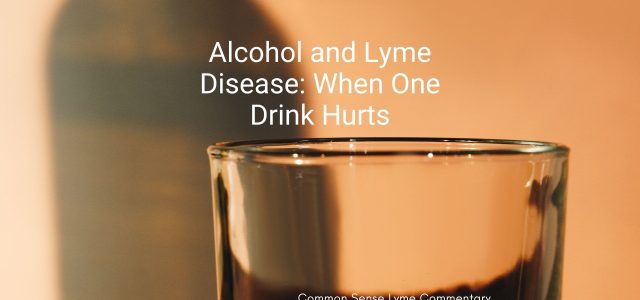
The Overlooked Trigger That Slows Healing
Alcohol and Lyme disease don’t mix—and for many patients, even one drink can stall recovery. In my practice, I’ve seen this pattern often. A patient is making progress, then suddenly crashes after what seemed like a harmless toast or casual glass of wine. Symptoms flare: fatigue, brain fog, pain, palpitations. It doesn’t take much. And yet, this connection is often missed.
Alcohol and Lyme Disease: An Overlooked Sensitivity
Many Lyme disease patients report unexpected reactions to alcohol—ranging from fatigue to heart palpitations.
These responses are real. And they’re common in those with chronic tick-borne infections.
As a clinician, I’ve come to see alcohol intolerance as a red flag—a sign that the nervous system, immune system, or detox pathways are under strain. That signal deserves attention, not dismissal.
Why Alcohol Triggers Lyme Symptoms
Here’s how alcohol can worsen Lyme disease symptoms:
-
Triggers inflammation, worsening joint pain and fatigue
-
Disrupts sleep, compounding cognitive and neurological symptoms
-
Aggravates autonomic dysfunction, including POTS, palpitations, and dizziness
-
May worsen Herxheimer reactions, especially when combined with antibiotics
Even one drink can set off a cascade of symptoms.
When a Drink Feels Like a Setback
In my practice, I’ve seen patients experience:
-
Brain fog and emotional crashes
-
Joint or nerve pain flare-ups
-
Nausea, gut upset, or Herx-like symptoms
-
Restless nights and next-day exhaustion
-
Palpitations or blood pressure instability
These reactions aren’t exaggerated. They’re physiologic consequences in a body already working hard to heal.
Should You Avoid Alcohol During Lyme Treatment?
For many, removing alcohol is a game changer—not because it’s permanent, but because it allows the body to focus on recovery without added stress.
Even if labs look normal, your body may be telling you alcohol is a burden. And in Lyme disease, those signals matter.
I always tell my patients:
“You don’t have to give it up forever—but if it makes you feel worse, it’s worth pausing while you heal.”
A Clinical Moment I Won’t Forget
One patient, mid-treatment for Lyme disease, celebrated a birthday with a beer. Hours later, he was in the ER with a Herxheimer-like reaction—headache, body aches, and chills.
Another told me, “I used to drink wine to relax—but now it unravels me.”
These aren’t rare stories. They’re reminders that alcohol and Lyme disease don’t always coexist peacefully.
How I Talk to My Patients About Alcohol and Lyme Disease
I’ve learned to ask:
-
How do you feel the day after even one drink?
-
Have you noticed your tolerance change since getting sick?
-
Do social events involving alcohol worsen your symptoms?
These questions open the door to safer, more personalized recovery plans.
Alcohol and Lyme Disease: What to Remember
-
-
It can worsen autonomic symptoms
-
It’s a modifiable factor that delays progress
-
It can trigger Herxheimer reactions when combined with treatment
-
It disrupts restorative sleep, crucial for healing
-
It may worsen neurological symptoms like brain fog or anxiety
-
If your body is saying no to alcohol—it’s not weakness. It’s wisdom.
Because in Lyme disease, healing isn’t just about what you take—it’s about what you take away.


I stopped using weed because while having Lyme( for 12 years), it started causing terribly unpleasant reactions. Now, 15 years after Lyme recovery, I still can’t tolerate it.
I wonder how often that happens and the reason why